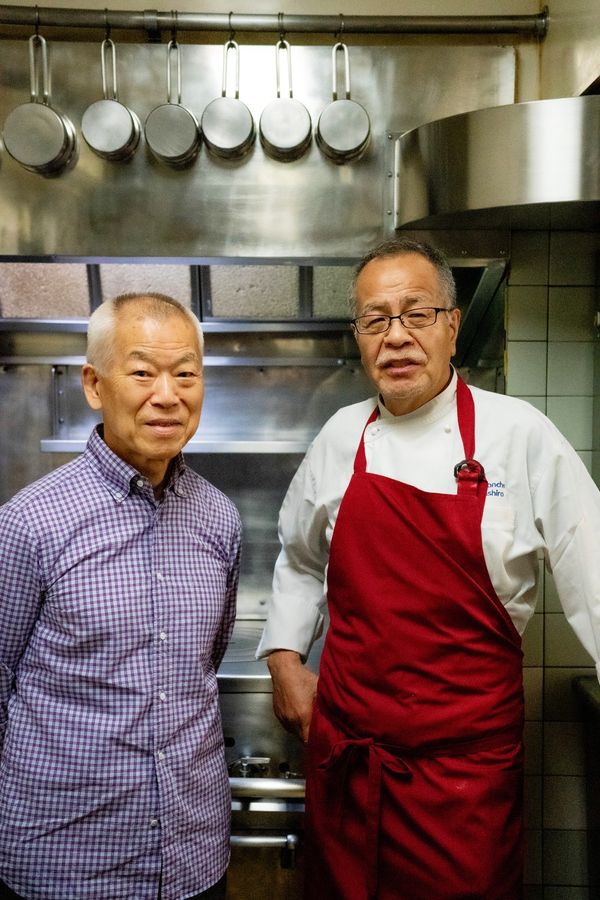Two 70-something chefs reflect on a lifetime of cooking French cuisine in Tokyo
Two legends in the world of French cuisine in Japan, chef Masao Saisu of Côte d'Or and chef Kazuhisa Tashiro of La Blanche, have a lot in common. They are both 72 years old, born in Fukushima Prefecture. After training in France, they opened their own restaurants in 1986; and, for the past few decades years, they have been at the forefront of Tokyo's culinary scene. Guided by their senses in the kitchen, Saisu and Tashiro have continued to find their paths forward, even amidst more than two years of a global pandemic.
For this article, the chefs have come together at the Farmers Market in Aoyama – where they often shop on weekends – to share their stories of their past, their food, and their thoughts on the future.
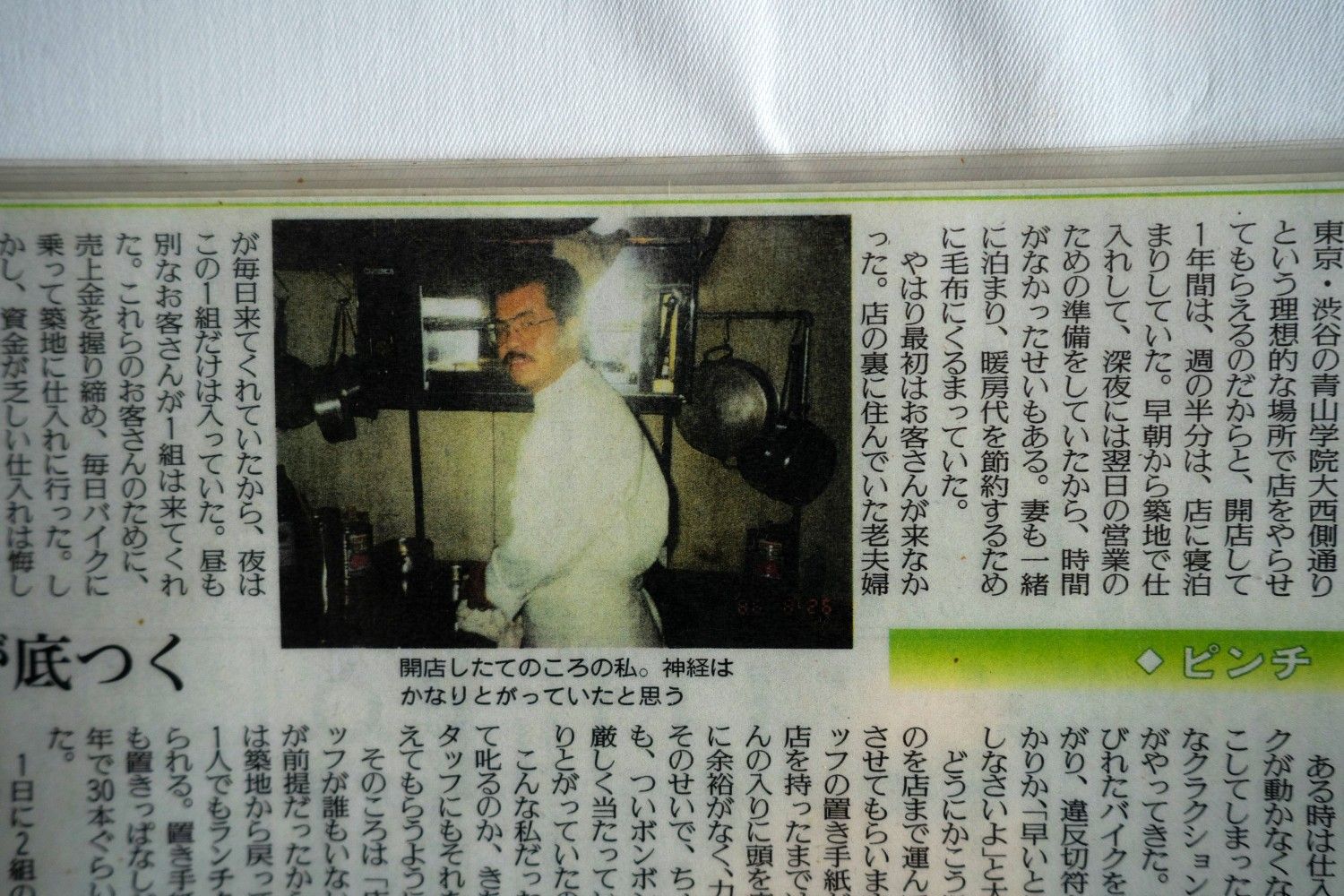
Encounters and Memories
Tashiro: I had known of chef Saisu for a long time – the first thing I wanted to do after coming back from France was to go eat at Côte d'Or. When I finally did, I could feel Saisu's personality through his cuisine, his honesty.
Saisu: When I went to eat at La Blanche, I was struck by the way Tashiro cooked, because it was completely different from what I had learned. The food had to be made on the spot, not in advance, so I thought: “It must be challenging for the kitchen!”. Vegetables grown in Japan are often said to be flavorless and watery, but on Tashiro’s plate they tasted totally different. Spinach, for example, stood out with its thick flavor and bright red stem. Also, he served the spinach with its roots on – you need to have a lot of guts serving vegetables with their roots still attached. I remember telling Tashiro, "I think it's great that you are different from other chefs.”
Tashiro: It was a time when I had been struggling with what kind of dishes to serve after coming back from France, so Saisu's words of encouragement really helped to push me forward. Back then, I would stick my head in the fridge and look at the ingredients... but I'm not sure if this was more to do with thinking about what to cook, or just cooling my head. I often felt like breaking through the walls of my restaurant and running away. Saisu made me realize that it was okay to create what I believed in – I'm still able to keep my restaurant going thanks to him.
I often felt like breaking through the walls of my restaurant and running away. Saisu made me realize that it was okay to create what I believed in – I'm still able to keep my restaurant going thanks to him.
Saisu: Everyone else was serving stylish, modern cuisine, but Tashiro’s food was different to that. I felt elements of nature in his cooking, almost as if it were pulled straight out of the earth – like a farmer who came to the city and started a restaurant, and I was astonished at how he did it.
Tashiro: After returning to Japan, at first I was also imitating what I had seen in France. But one day I suddenly felt like I could not see myself on the plate - it felt so empty. Is this really delicious? Does it have my soul in it? These questions came to me, and my ideal image of cooking up to that point began to crumble.
Saisu: One time I was talking with Tashiro and he said something poetic: he once swam in the river for so long that his lips turned purple, and, on the way back, he drank water using a leaf plucked from there as a vessel. He said that ‘it smelled like moss.
Tashiro: It was a butterbur leaf, it tasted good when I drank water with it. My cooking transformed when I thought about incorporating memories into my food. Like the time I fell asleep by the river after swimming and got stung by a horsefly. Or how I grew up with miso soup and pickles. I thought it would be a good idea to include such natural ‘ingredients’ in my cooking.
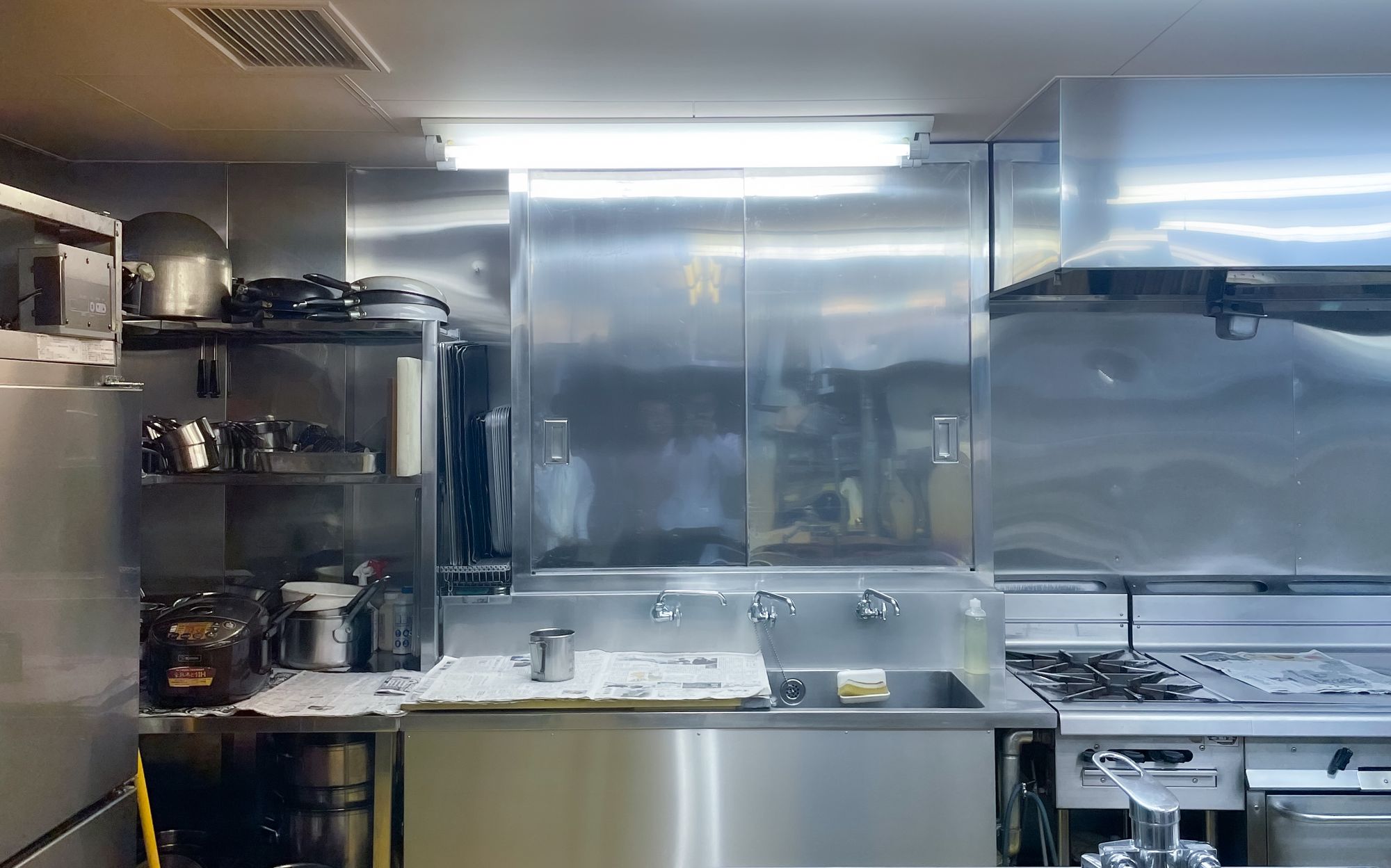
Why France?
Saisu: I have always loved cooking, but I couldn't adapt [in Japan] because I don't like hierarchical relationships.
Tashiro: I also find hierarchical relationships exhausting. I feel suffocated when things get intertwined, as I have poor communication skills and adaptability to society. As a chef I can work steadily, and I simply like to eat. That's why I like my job.
...I simply like to eat. That's why I like my job.
Saisu: I went to France because I felt I couldn't fit in with the unhealthy social system in Japan. I needed to become as good as the people at the top of the hierarchy in order to do what I wanted to do – but even if I tried to learn from them, they wouldn't teach me anything that wasn't convenient for them. So I needed to go outside of Japan to break free. I had never taken a plane before, I was scared... but there was no other choice.
Tashiro: With a one-way ticket, you can't just go home… I studied French for six months before going to France, but when I got there, I couldn't communicate at all. I could barely make it to Paris from the airport!
Saisu: There was no comfort zone for me when I was there. It was tough because I am a wimp, but I had to hang in there because, if I went back to Japan, I knew it would be the same struggle all over again. Looking back, I think I had a nervous breakdown at the time.
Tashiro: I had heard your name in many places in France. When I went to the restaurant Vivarois, I also heard great praise for your work. So when I returned to Japan, I first wanted to go to eat at your restaurant. I still remember the taste of the first bite - it was the red pepper mousse. I ate it and thought, " Yes, I will go for it!”. Your restaurant is like a milestone in my life.
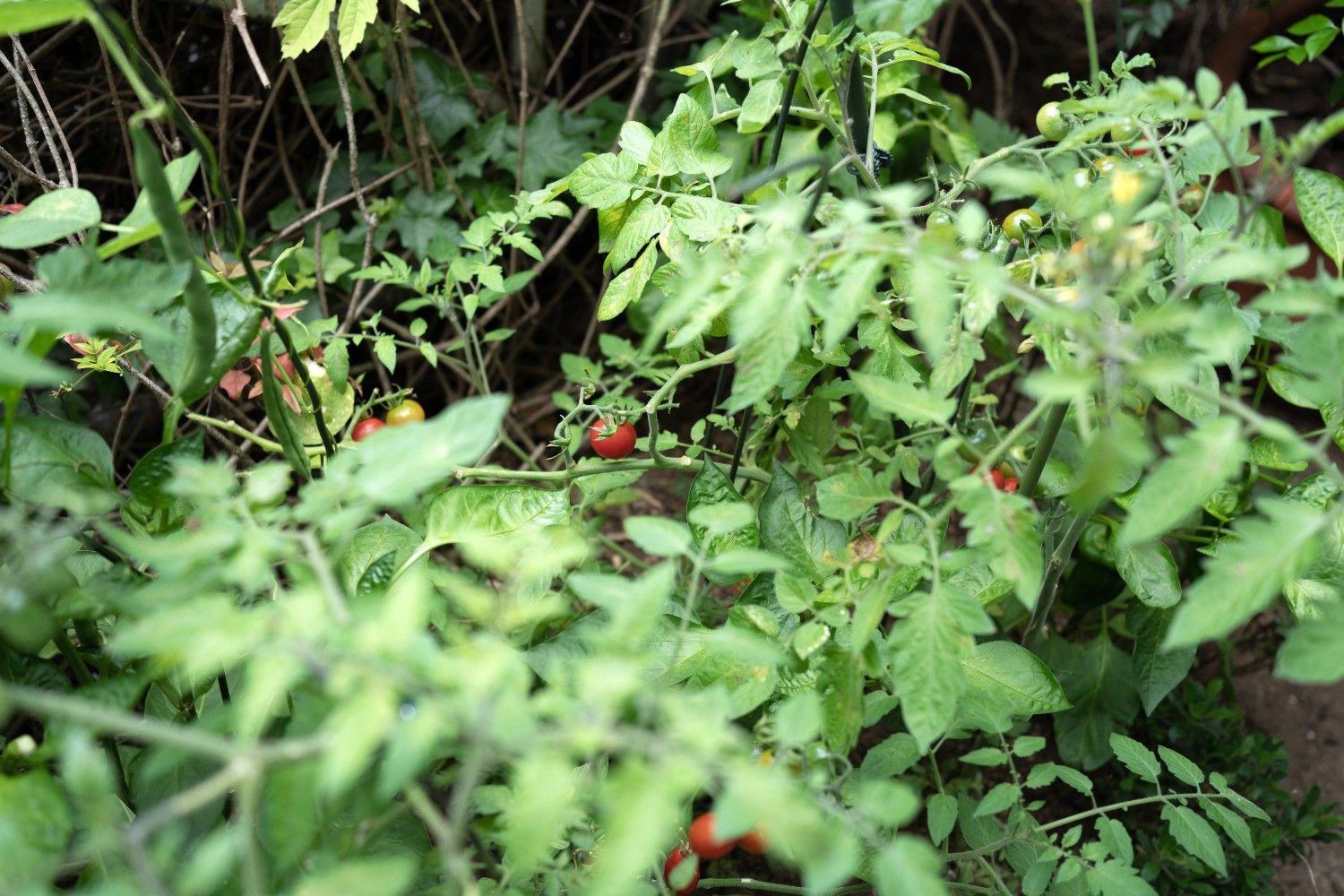
Cook in Your Own Way
Tashiro: What I am telling young people now is that if you cook with calculations in your mind, you will not make mistakes. But if you experience a moment when you are pushed to the limit and do things desperately while your mind goes blank, at some point you will be able to see the way to get into it. Everyone is afraid of panicking, so they try to give themselves space by doing things like boiling the vegetables earlier, or cutting the tomatoes beforehand. But I want to cut the tomatoes just before serving because I want them to be fresh. If you have that mindset, you can get it done in time without thinking too much about it in your head.
Saisu: Nowadays, innovative cooking is becoming more and more popular, but I think it is better to cultivate more indigenous human strength, taste and sensitivity. But it's hard to inhabit such things unless you are put in a scary place to the point of freaking out. You have to have the guts and determination to run up and grab it.
Tashiro: How should we live as chefs in this day and age? We are in a risky trade - we have our ups and downs. But you know, in the end, you have to decide what you want to do. We are in a harsh situation now, but what do we want to do because of this situation? During the pandemic, I came in touch with nature more. Then I realized that whether I live or die, I have no choice but to show myself as I am. Because that is who I am.
Saisu: I always wanted to know what I should continue to do to survive as a chef. To do so, it would be zero points if I did the same thing as everyone else. I have always wanted to express myself, and that is what I have been pursuing.
Tashiro: I tell my restaurant staff not to read cookbooks that have pictures or photos in them. Books without pictures may be difficult to read and understand, but you can draw a lot of pictures in your own mind. If they have pictures, on the other hand, you get caught up in them and it is difficult to break away from them. You lose that spark when something suddenly connects with you, after thinking for yourself and being trapped, despite trying many times. It takes a long time to get an outcome, but that one moment when you have that spark will remain with you for the rest of your life and become your asset.
I tell my restaurant staff not to read cookbooks that have pictures or photos in them. Books without pictures may be difficult to read and understand, but you can draw a lot of pictures in your own mind.
Saisu: I don't think young people today have the time for thinking like this. They get things done quickly, but the process of contemplation is priceless. That's why you can come up with something that people will love for many years. I feel like the more hands-on, human-mediated food tastes better. Also, looking at young people, I feel that they don't have time to dream. They are constantly connected to someone else and have no time to be alone and empty. When I was young, I only had that sort of time, so I was always dreaming and thinking, "I'm going to get there someday.”
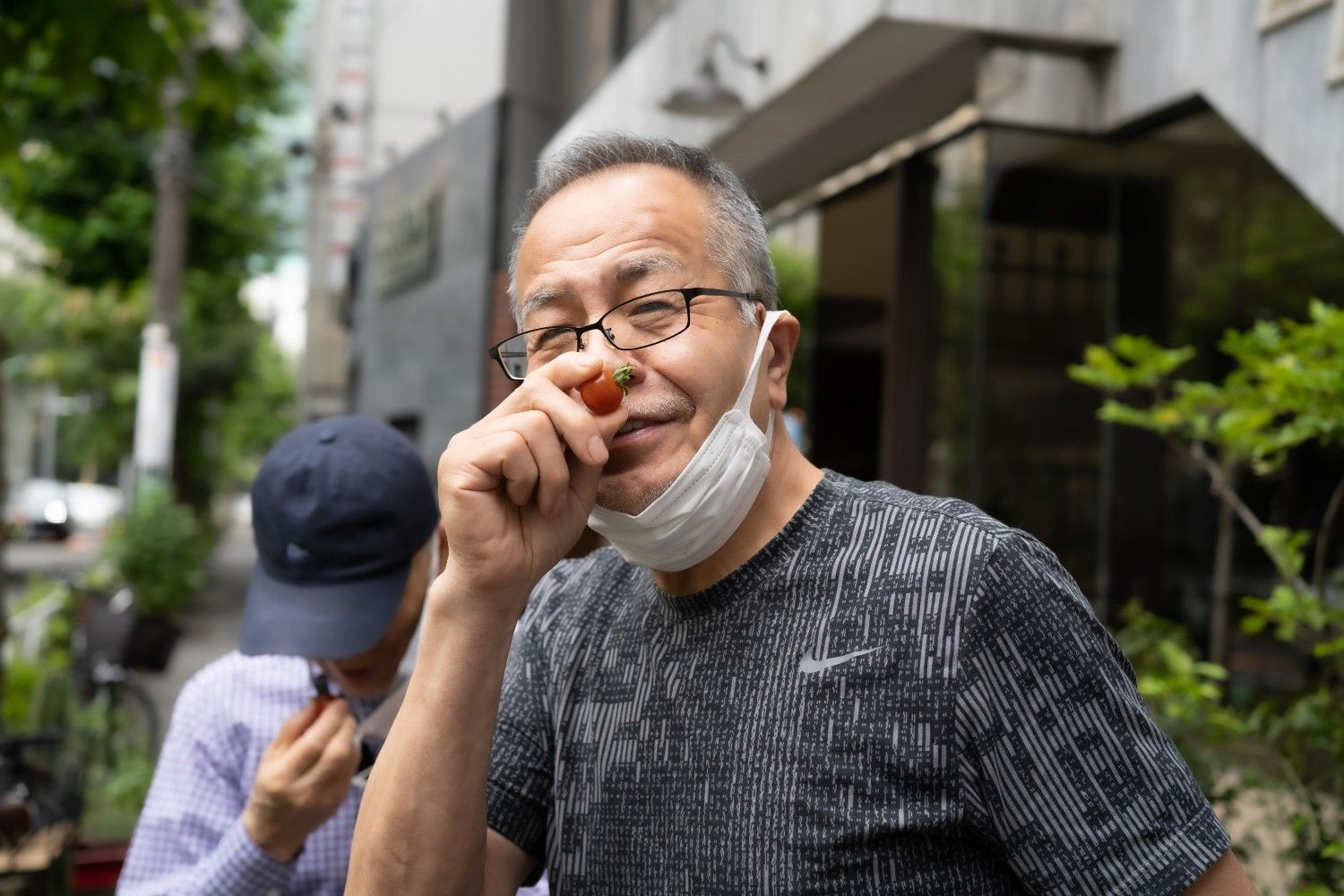
What Penetrates Through Time
Tashiro: I wonder if there are people in this industry who are still standing in the kitchen at the age of over 80. We're still in our kitchens every day from morning till night, even though we're over 70. If we lose the ability to climb the stairs of our own restaurant, we're done (laughs). The chef is late," or "Oh, I'm on the third step now!". I'm glad to have this kind of conversation together with you, Saisu.
Saisu: Good health is important, but the kitchen is a melting pot of temptations. So our job is the opposite of being healthy (laughs). Even having come this far, though, what I would like to eat now are old pickled cucumbers and tree buds – they are precious and healthy. This kind of food used to be common in the past, but now that this kind of food is being lost.
Even having come this far, what I would like to eat now are old pickled cucumbers and tree buds - they are precious and healthy. This kind of food used to be common in the past, but now that this kind of food is being lost.
Tashiro:In my opinion, food basically has to taste good. And it is the chef's ability to create something that exceeds the general level of deliciousness. But that is not something you can learn in a day. Although I have been in the kitchen from morning to night every day for 36 years, I still get new feelings and uncertainties each day. If it wasn't for that, I would have gotten bored and quit a long time ago. And for 36 years I've experienced hard times, which made me build a solid foundation, so I won't collapse easily. The customers have been worried about us for the past year or two because of the pandemic, but we have overcome many difficult situations in the past anyway.
Saisu: This may be a bit off-topic, but I hope that producers won't disappear. I think society has become arrogant by relying on imported food but producing a lot of waste. I feel that people in the restaurant industry are the ones who produce the most waste and play with food. We need to be more gentle with the ingredients. It doesn't matter if vegetables are wonky. In the past, it was normal for people to feed their neighbors, even if they were not as wealthy as we are today. They were harmonious without wealth or luxury. I wonder why we fight over what we have plenty of today... It's kind of weird, isn't it? We are in the culinary business, but what we really want to do is try to deliver that message. What needs to be corrected, providence. What is the blood for the way of life, mutual understanding. Something that penetrates through time. That is what we want to deliver through our cooking.
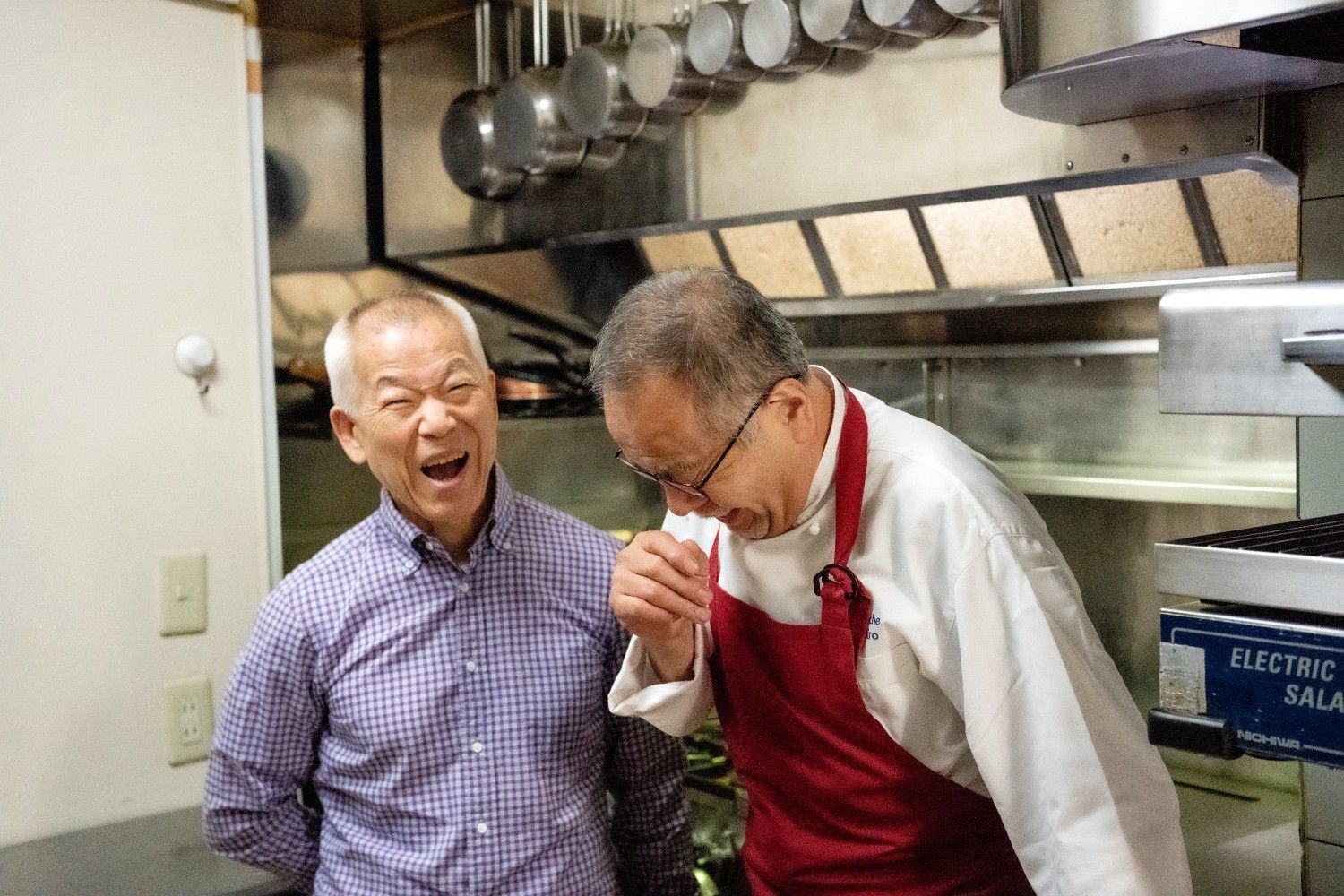
Kazuhisa Tashiro, La Blanche
Born in Fukushima Prefecture in 1950. After graduating from high school, he moved to Tokyo to attend a culinary school, and then to France, where he trained at Le Landais, Guy Savoy, Bariel Nuits, and other French restaurants. After returning to Japan, he worked as a chef at a French restaurant in Ginza in 1983, and opened "La Blanche" in 1986.
Masao Saisu , Côte d'Or
Born in Fukushima Prefecture in 1950, he entered the world of French cuisine at the age of 18 and flew to France in 1973. He developed his skills at famous restaurants such as "Auberge de Cancangrone," "Vivarois," and "Taillevent," and opened "L'Ambroisie" in Paris in 1981 with Bernard Pacquaio. He then returned to Japan and became the head chef at "Côte d'Or" in 1986, and has been the owner-chef since 1992.
Interview & text by Yuri Nagashima, Yusuke Tanaka
Co-Edit by Takeshi Okuno
Translation by Riho Matsumaru
Photos by Yusuke Tanaka

